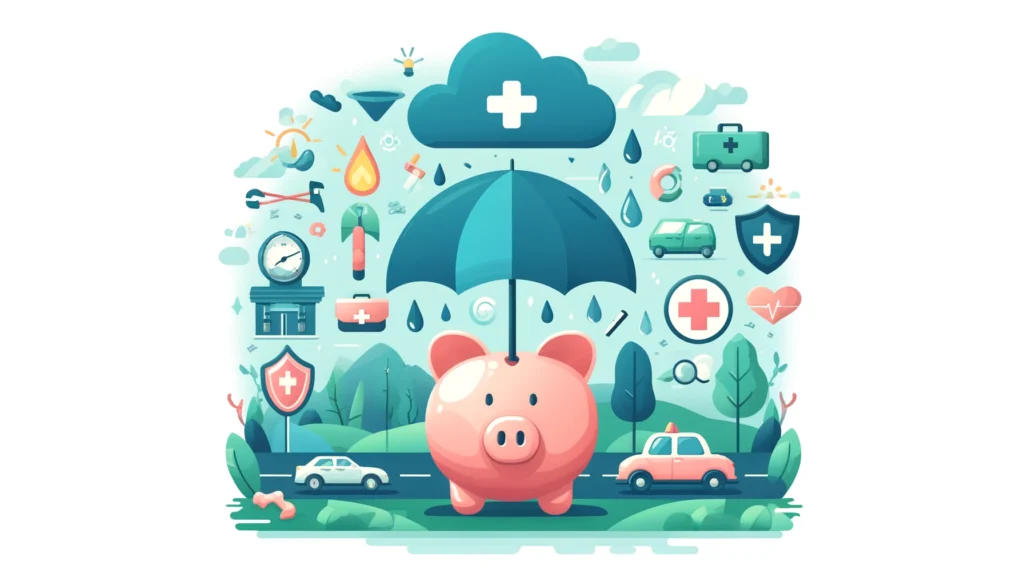What’s the purpose of an emergency fund?
An emergency fund, often considered a cornerstone of financial planning, serves as a critical buffer against unexpected financial setbacks. The purpose of an emergency fund can be multi-dimensional, encompassing aspects such as providing financial security, preventing debt, and ensuring peace of mind. This article delves into why everyone should consider establishing and maintaining an emergency fund, the benefits it brings, and practical tips for how to build one.

Understanding the Emergency Fund
An emergency fund is essentially a bank account or a liquid financial instrument where you save money specifically for unexpected expenses or financial emergencies. These emergencies could include unforeseen medical bills, sudden job loss, urgent home repairs, or necessary car maintenance. The fund is not meant for planned expenses, investments, or discretionary spending.
Primary Purposes of an Emergency Fund
- Financial Security
The primary purpose of an emergency fund is to provide financial security. In the event of sudden unemployment, for example, having an emergency fund can cover living expenses while you search for a new job. This fund acts as a financial cushion that can help you maintain your standard of living during periods of severe financial distress without the need to incur debt. - Avoiding Debt
One of the significant benefits of having an emergency fund is its role in debt prevention. When unexpected expenses arise, many individuals without a reserve may turn to solutions like credit cards or high-interest loans. These methods can quickly lead to a debt spiral. An emergency fund provides an alternative that can prevent this kind of debt accumulation by offering readily accessible funds that can be used without financial penalties or interests. - Peace of Mind
Beyond the tangible financial benefits, an emergency fund contributes significantly to mental and emotional well-being. Knowing that you have a financial buffer can reduce stress and anxiety associated with the uncertainty of life’s many risks. This peace of mind enables you to focus more on your career, family, and other aspects of your life without constant worry over potential financial crises.
How Much Should Be in an Emergency Fund?
Financial advisors often recommend that an ideal emergency fund should cover three to six months’ worth of living expenses. This range can vary depending on personal circumstances such as job stability, family obligations, and overall health. For those with less stable employment or higher health risks, a larger fund may be necessary.
Building an Emergency Fund
Step 1: Assess Your Expenses
Start by calculating your monthly living expenses. Include all necessary expenditures such as rent, utilities, food, insurance, and any regular debt payments. This total will give you a baseline for how much you need to save to cover several months of expenses.
Step 2: Set a Savings Goal
Based on your expenses, set a realistic savings goal. If it seems daunting to save six months’ worth of expenses, start smaller. Even a $1,000 fund can be a lifesaver in many situations.
Step 3: Create a Savings Plan
Determine how much money you can reasonably save each month. This might involve budget adjustments or cutting back on non-essential spending. Consider automating your savings to ensure consistency without having to remember to transfer funds regularly.
To boost your savings rate, consider exploring various options to earn additional income.
Step 4: Choose the Right Savings Tool
Select a savings account that offers a good interest rate while providing easy access to your funds. High-yield savings accounts, money market accounts, or short-term CDs can be excellent options for keeping your emergency fund both accessible and productive.
Step 5: Maintain and Grow Your Fund
As your financial situation evolves, so should your emergency fund. Periodically review and adjust your savings goal. If you receive a raise or windfall, consider directing a portion of it to your emergency fund.
Conclusion
An emergency fund is not just a financial tool, but a critical component of a sound financial strategy. It offers not only security, protection, and peace of mind but also empowers you to make decisions in other areas of your life with greater confidence and less financial constraint. Starting small and building steadily can help ensure that when life does offer surprises, they don’t have to become crises.

